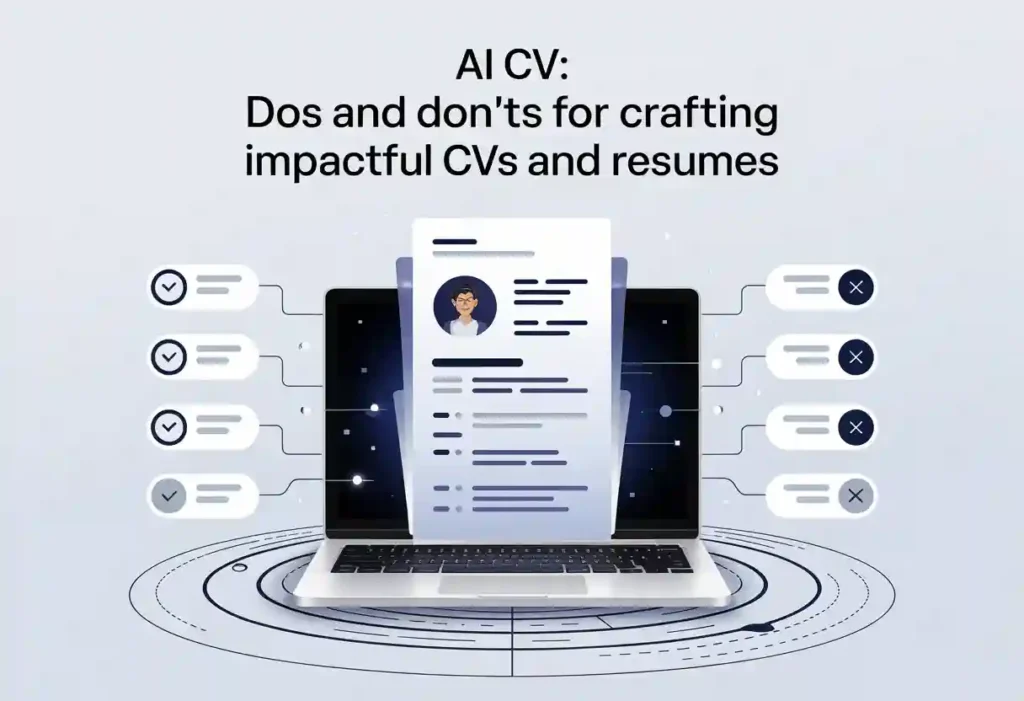Creating Your Career Path: The Daunting Process of Self-discovery and Fulfillment
People entering the workforce nowadays often believe that their schools didn’t teach them how to create a solid career path during those formative years. This is an all-too-common realization when people eventually reach the job market.
Unfortunately, by the time they have realized this, they may already be working in an entry-level position at an organization, not knowing where this role might take them. Granted, this scenario is only applicable to some.
Many people graduating each year come to the job market with little idea of how their chosen industry operates regarding career progression. In our previous blog, we discussed what a career path is and how establishing one for yourself is essential to finding your dream role.
This article guides you through the highs and lows as you climb the career ladder. We will discuss how to create a career path and get the most out of it, including tips and dos and don’ts, and provide examples of specific industry career paths.
Let’s address your career path today.
What a Career Path is and Why It Matters
Before going any further, let’s talk about a CAREER PATH.
A career path is the intentional and proactive lifelong steps you take to progress into different job roles in your professional journey. It is a defined plan that helps a person advance to a desirable job.
A career path is a route that involves jobs or roles and experiences that make up your career and help you achieve your career objectives and goals. It is a road map that enables you to realize your professional aspirations.
Some people have a linear career path in a particular industry, while others may shift through different roles and industries more frequently and acquire different experiences in the process.
In essence, career paths plan and shape your future career growth within an organization. The company’s human resources team performs this task by identifying employees’ skills and career advancements.
But why does it matter? A career path matters because it provides the direction to structure your professional life and achieve your career objectives.
It sharpens whatever skill(s) or knowledge you have, ultimately preparing you for future higher-level roles or a promotion.
The Benefits of Building a Career Path
Is there any good in making a professional path for ourselves? Yes. Let’s examine some. It:
Keeps You Motivated
A career path is like a road map that guides you through many paths, twists, and turns and gives you something to work towards.
Career paths may be rough, but they keep you motivated. With a career path, you can measure your progress and see how far you’ve come. This will motivate you to move forward and achieve more milestones.
Improves job satisfaction
As you construct your career portfolio, you understand how your current role fits into your career plan and helps you accomplish your goals. This will leave you feeling more satisfied with your role or job in a company.
Clarifies your journey
A career path gives you a clear view of your skillset, talent, passion, career goals, and where to go career-wise. This clarity will guide your journey.
Improves output
A structured career path improves engagement and output by showing you your current status and allowing you to evaluate your performance. This will make you more invested in improving your skills, thereby being more productive and valuable to your company.
Decreases employee turnover
Your satisfaction as an employee is of the utmost importance, and let’s face it: employees are hungry for organizations that align with their values and goals. If an organization no longer aligns with employees and what they want, they will most likely leave, leading to employee turnover.
Therefore, Career pathing is a valuable tool for employee retention as it helps them see future opportunities with their company and stay there for a long time.
Companies should invest in employees’ career growth to avoid employee turnover and its financial costs. This will help companies retain their best talent and save them the economic trouble of recruiting and replacing new staff.
How to Get Your Career Path Right: Step-by-Step Guide
Conduct Self-assessments
This requires evaluating and identifying your skill set, interests, strengths, weaknesses, values, goals, and personality to stay on track with different career paths. You assess your professional needs, goals, and trajectory, and identify areas relevant to your role of interest.
To find meaning, you need to look within yourself, understand what you want to accomplish, and connect your skills to your job (or future jobs you hope to fill).
A good example is a skills assessment. It helps you identify your skills gaps and the new skills you need to develop to benefit your career.
Define Your Career Goals and Purpose
Based on your self-assessment, you can set (achievable) career goals to work towards in your desired industry. Establishing your goals from the outset will provide a firm foundation and set the pace for your career path. Hold regular conversations with yourself about your short- and long-term career goals.
For example, your goal could be;
- Holding a specific position like project manager, CFO, or executive assistant
- Working for an organization you admire
- moving to higher-level positions or upper management
- Making an average income of $70,000 every year, or
- Making a career change or transferring to another job, e.g., an account manager moving to a marketing role.
Write Down Your Action Plan
Now it’s time to break down all those goals and aspirations into little chunks of (achievable) tasks. In addition, you can set a timeline for completing each of these tasks. Once you fully understand the steps required to reach your career goal, always commit your plan to paper. This will make your career path easier to manage and give you a sense of fulfillment as you complete each task.
For example, if you want to advance in your career, an action plan could include networking with people within or outside your field, volunteering to lead team projects, or finding a mentor. While there is no one-size-fits-all approach, an action plan could look like this. However, tailor your actions to fit your personal needs.
Research: Understand the Labor Market
Jumping right into a career path without testing the waters first will be to your disadvantage. You need to do your homework to understand and be ready for what you’re getting into. You should research on;
- What skills and experience do you need to be considered for the position you have in mind?
- The requirements and responsibilities for the job role.
- The salary information: Remember that the listed salaries are just averages, meaning they may be lower or higher than what you currently earn.
- Promotions details from the manager, HR manager, company website, or HR department.
- Technological advancements may cause fields or industries that are very likely to grow and become more attractive in the future or decline.
- Industry trends as well, and staying updated with labor statistics.
Seek Guidance When Needed: Find a Mentor
When you experience problems or challenges, you should enlist the help of a private career mentor. Having a mentor (or mentors) is incredibly helpful in succeeding in your career path.
A mentor has been in the system and has it all figured out. Therefore, they can help you navigate the field, fill in specific gaps, augment your job searches, and point you in the right direction. Who knows, you might even create the foundation for a business relationship.
You and your mentor can meet for informational interviews twice a week or once every two months.
Execute Your Plans
You have your plans? Well done. Now it’s time to execute them. Implementing your plans is crucial in taking meaningful steps in your career path. You can;
- Schedule time to research, network, or develop new skills or your personality
- Record your progress to catch up on the timeline of your action plan and stay on track
- Invest more effort and time to improve
- Read relevant books to gain new insights and learn
- Search and apply for jobs and careers that you are passionate about
- Explore new opportunities across industries and sectors
- Establish useful connections
- Most importantly, celebrate your wins
Evaluate Your Progress
Be it every month or quarter, set aside time to reflect on your career development regularly. Look at how far you’ve come, identify areas where you need to improve, and start working on them. Also, you can get reviews from people with experience in the same profession and gather valuable insight to refine your plan.
This will help you keep growing and achieve the goals that you desire.
Tips for Successful Career Path Planning
If you’re starting your career or want to change careers, here are a few common tips you can follow.
Dos and Don’ts in Career Paths Planning
Dos
- Craft an attention-grabbing and up-to-date resume: Your resume is your marketing document, so make it as attractive as possible. Also, keeping it up to date should be a continuous exercise.
- Consider new education and training programs: Learning and growing are part of career path planning. Don’t miss training opportunities, workshops, or courses relevant to your career growth.
- Leave your comfort zone: To advance in your career, you must leave your bubble. You can solve an organizational problem to show how competent you are.
- Explore further career advancement opportunities: You can broaden your experience by making a lateral movement instead of sticking to a linear one. Exploring different career paths can be a breath of fresh air.
- Pinpoint your transferrable skills: Consider how your skills acquired from your career or education can be useful and applied to new careers. Transferable skills are a lifesaver if your preferences change and you decide to switch career paths. For instance, if you have a degree in Mass Communication, you can transfer the skills you gained to being a project manager.
- Be ambitious: You will get the most out of a career plan that pushes you to new heights.
Don'ts
- Forget the details: The more detailed you can be in exactly how you get from one place in your career to another, the easier you will find that transition when you come to it.
- Keep it all to yourself: Telling the right people in your organization, friends, and family can help give you a more comprehensive network of people looking out for how to advance to that next step in your plan.
- Change your goal too often: You can tweak aspects of your plan occasionally, but if you are constantly rearranging the architecture of your process, it will become challenging to remember what you wanted out of having a career pathway in the first place.
- Compare yourself to others: Career paths are individual and particular to each person. Your career pathway may be different from that of your peers or colleagues, but that doesn’t make you less successful.
- Set unrealistic career goals: When you set unrealistic goals, you’ll get disappointed when the reality doesn’t meet your expectations. Consequently, you feel stuck and demotivated. To prevent this, use the SMART model. Your goals should be specific, concrete, measurable, achievable, and realistic. Most importantly, it must be time-bound.
What are Examples of Career Paths? (By Industry)
Below, we have provided examples specific to various popular industries to give you an idea of a career pathway.
Industry: Information Technology (IT)
Career Pathway:
- Earn a bachelor’s degree in Information Technology
- Complete a Computer Technician Training Course and sit relevant proficiency exams.
- Find an apprenticeship or internship as an IT assistant or other relevant role.
- Build up skills, experiences, and certifications in IT job roles.
- Apply as a hardware technician at the desired company or organization.
Industry: Nursing
Career Goal: To become an Emergency Nurse
Career Pathway:
- Earn a practical nursing diploma, Associate degree in Nursing, or Bachelor of Science in Nursing.
- Gain specific work experience in emergency nursing in hospital wards.
- Complete Emergency Nursing Certification.
- Apply to become an Emergency Nurse at the hospital of choice.
- Land position as Emergency Nurse.
Industry: Aviation
Career Goal: To become a Commercial Airline Pilot
Career Pathway:
- Complete a degree in Air Transport or Aviation
- Acquire a Class 1 Medical Certificate and a Frozen Air Transport Pilot License.
- Pass Civil Aviation Authority Medical and background checks.
- Build enough co-pilot hours to apply for the full Commercial Pilot License issued by the Civil Aviation Authority.
- Apply to an airline to become a short-haul or long-haul passenger pilot.
- Land position as Commercial Airline Pilot.
Industry: Accountancy
Career Goal: A Chartered Accountant
Career Pathway:
- Study and complete the AAT (Association of Accounting Technicians) qualifications in accountancy to progress to the ACAA (Association of Chartered Certified Accountants) qualifications.
- Choose an accounting specialism from auditing to corporate tax.
- Secure an accountancy apprenticeship or internship with a valuable firm.
- Develop a range of work experience to acquire the various skills and proficiencies required for an accounts position.
- Apply for Chartered Accountant positions like an account executive.
Industry: Marketing
Career Pathway:
- Complete a Bachelor’s degree in PR and Marketing.
- Apply to become a marketing assistant.
- Build experience, relationships, and critical skills in this role.
- Take the Chartered Institute of Marketing exams to prove skills and understanding of marketing abilities.
- Apply for positions like Marketing Manager, store manager, or sales manager.
Industry: Engineering
Career Goal: Engineer
Career Pathway:
- Complete a Bachelor’s degree in Structural or Civil Engineering.
- Complete a year or more of industry experience as part of your course or after completion.
- Study and complete a master’s degree in Civil Engineering.
- Join a professional body such as ICE to provide enhanced employment and career development prospects and access to professional training.
- Acquire chartered status by completing three stages of ICE membership.
- Undertake Initial Professional Development.
- Gain experience in a work placement.
- Apply for positions like civil engineer, engineering consultant, or junior engineer.
Industry: Mass communication
Career pathway:
- Complete a Bachelor’s degree in Mass Communication
- Join a professional body or bureau.
- Apply for jobs like senior editor, associate editor, and writing
Industry: Education
Career pathway:
- Complete a Bachelor’s degree in Education
- Build up skills, experiences, and certifications.
- Pursue positions like administrative assistant, assistant principal, or teacher at a school.
Some of these career paths are similar because some industries have the same career paths but with different titles. Climbing up the career ladder will require flexibility. If a lateral move gets you closer to your vertical movement, then (by all means) go for it.
Like this post?
Sign up for our blog updates and never miss a post.
We’ll send you A FREE job interview eBook as a thank-you.
Career Path Quizzes
Below are several online quizzes that can help you discover potential career pathways that may align with your skills and aspirations:
Princeton Review Career Quiz: This career-oriented quiz was developed by Dr. Holland, a psychologist whose theories have shaped many career counseling practices.
Myers-Briggs Type Indicator (MBTI): This isn’t a career quiz per se, but it is a personality test used by counselors to help identify careers that are best for specific personality types.
16Personalities: This quiz is based on the Myers-Briggs Type Indicator (MBTI) and guides you on what types of jobs could be a good fit for your personality.
CareerExplorer by Sokanu: This career test measures your interests, history, personality, and goals to match you with over 800 careers.
Truity Career Personality Profiler: This test provides the careers that fit you based on your personality type.
Career Fitter’s Career Test: This test measures your work personality and determines what career is best for you.
Career Strengths Test by TestQ: This test determines your most vital skills and directs you toward a suitable career path.
PathSource Career Quiz: This app-based quiz helps you explore many career paths based on your lifestyle and income expectations.
The MAPP Career Assessment: This quiz assesses your motivations toward different work areas and points you toward a career that fits your preferences.
O*NET Interest Profiler: It is provided by the U.S. Department of Labor to help you determine how your interests relate to your career choices.
These quizzes are tools to guide you as you explore various career paths. However, do not expect them to be the sole decider of your career choice. For your benefit, consider consulting a career mentor or counselor and researching a career path.
Key Points to Remember When Creating a Career Path
Here are some essential points to remember;
- A career path is intentional and defined.
- With the help of human resources, plan your career paths and shape your future career growth within an organization.
- Remain flexible. You don’t have to stick to one field or a specific job. Be willing to explore a variety of fields and gain different experiences.
- Degrees and relevant certifications are in high demand and needed to qualify for high-end jobs.
- Having a mentor or a professional to help and support you in shaping your career path has a tremendous impact on your journey.
- Make good use of every opportunity to learn.
- Your career path is your responsibility.
- Don’t limit yourself.
- Put your plan down on paper to visualize your career path and commit to your goals.
- Use your network. People you know, from your university professor to your family, may help you create achievable goals.
- Work hard. Planning won’t get the ball rolling. Once you have a plan, go after it!
The Role of Hard Work in Achieving Your Goals
A successful career path is a product of hard work. It takes determination, resolve, and commitment toward your goals. Creating a career path might be challenging, but you should embrace every step, seeing it as an opportunity to grow and learn.
Valuetainment shares a 9-minute video on the three qualities you need to advance in your career constantly:
No matter what you plan, your hard work is the bridge between your expectations and reality. You have a beautiful journey ahead of you, and with the tips provided in this article, you can create a fulfilling career path. So, soldier up and march with confidence.
Best of luck.
Meanwhile, click the link to learn how to write a resume like a guru. Best of luck again!
Further Reading: Creating Career Paths
- How To Become More Employable Straight Out Of University (Part 1 Of 3)
- 8 Successful Job-Hunting Strategies You Should Know
- 6 Hiring Managers Spill Their Hiring Secrets
- Best 4 Resume Fonts












